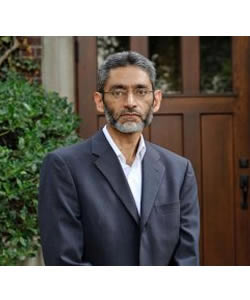Islamic Law (Sharia) and U.S. Foreign Policy
Islamic Law (Sharia) and U.S. Foreign Policy Video Player
Friday, September 23, 2011
8:45 a.m. - 12:30 p.m. EDT
Location:
Berkley Center Third Floor Conference Room Map
Building on a two-year project conducted by the Institute on Culture, Religion, and World Affairs at Boston University, this conference brought together leading experts in the study of Islamic law to examine the political uses and meanings of sharia in Muslim societies. Designed for policy analysts, journalists, and others involved in the Muslim world, the conference highlighted the implications of sharia politics for democracy, freedom, social justice, and Western foreign policy.
This seminar was sponsored by the Berkley Center for Religion, Peace, and World Affairs and the Institute on Culture, Religion, and World Affairs at Boston University.
Schedule
Welcome and Introduction | Tom Banchoff, Robert W. Hefner
Panel 1: Saudi Arabia, Egypt, Iran, and Turkey | Bahman Baktiari, Nathan J. Brown, Robert W. Hefner, Frank E. Vogel, M. Hakan Yavuz
Panel 2: Pakistan, Nigeria, Afghanistan, and Indonesia | Thomas J. Barfield, John Esposito, Robert W. Hefner, Paul M. Lubeck, Muhammad Qasim Zaman
Discover similar content through these related topics and regions.
Image Gallery
Image Gallery
/1

Islamic Law (Sharia) and U.S. Foreign Policy








